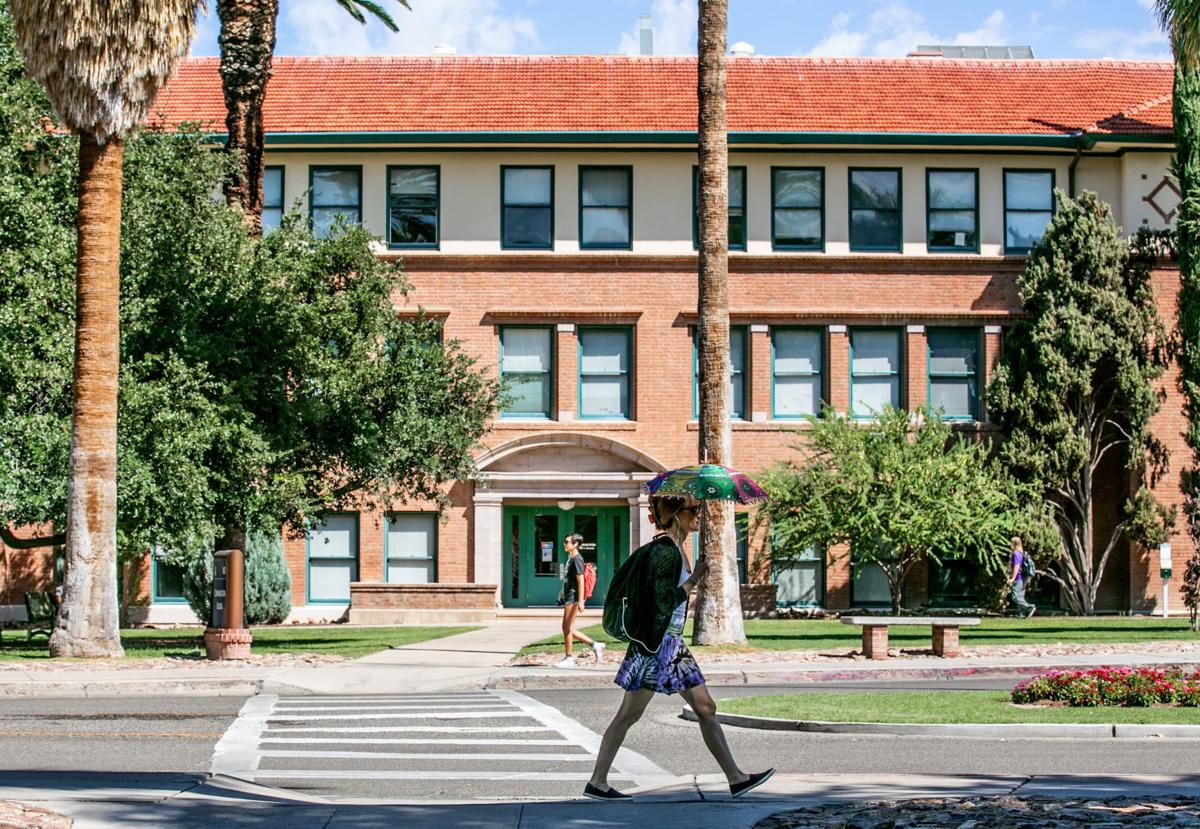PHOENIX — Courting a possible lawsuit, state senators voted Wednesday to direct the Board of Regents and community college boards to create special tuition rates for students who graduate from Arizona high schools but don’t qualify as in-state residents.
The main beneficiaries would be “dreamers,” as immigrant students in the Deferred Action for Childhood Arrivals program are known.
Arizona’s public colleges and universities have two distinct tuition rates, one for those who qualify as Arizona residents and one for those who do not.
Senate Bill 1217, proposed by Sen. Heather Carter, R-Cave Creek, would mandate a third rate.
Her bill doesn’t specifically say what that new rate should be. Carter said she envisions it would be set somewhere between what residents pay and what is charged to everyone else.
She said this could help students who graduated from an Arizona high school, moved elsewhere but now want to attend one of the state’s three universities without paying out-of-state tuition.
But the more immediate beneficiaries would be those in DACA who graduate from Arizona high schools.
Wednesday’s 18-12 approval by the Senate sends the measure to the House.
Until last year, DACA students qualified for in-state tuition if they met other residency requirements.
But a 2018 ruling by the Arizona Supreme Court concluded that a voter-approved law says resident tuition is available only to those who are in this country legally. The justices said that while federal law allows DACA recipients to remain in the U.S. without fear of deportation, they do not qualify for resident tuition.
Proposition 300, a 2006 voter-approved initiative, says any person who is not a U.S. citizen or “legal resident” or is “without lawful immigration status” is ineligible to be charged the same tuition at Arizona colleges and universities available to residents. The same law denies them any type of financial assistance that comes from state funds.
Carter said SB 1217 wouldn’t repeal any of that. In fact, the Legislature is constitutionally powerless to alter that law as it was approved at the ballot box.
She said she thinks her bill is legal because it seeks to create something that neither the 2006 law nor the Supreme Court addressed.
It is not a special tuition for dreamers, Carter said.
“I’m creating a new tuition classification that is targeted to two things: Are you eligible to go to college, and did you graduate from an Arizona high school,” she said.
But Sen. Eddie Farnsworth, R-Gilbert, said Carter is wrong, due to Proposition 300 and the high court ruling, if she believes the bill will pass legal muster.
Arizona Attorney General Mark Brnovich got the court rulings declaring in-state tuition off limits to DACA recipients.
Since that time the Board of Regents has adopted its own version of what Carter is proposing: a special rate for high school graduates who do not otherwise qualify for in-state tuition because of Proposition 300. That rate is set at 150 percent of the resident tuition, a figure that regents say covers the actual cost of instruction, meaning there is no subsidy of state dollars.
It still is far lower than what those in the DACA program would have to pay in out-of-state tuition. At the University of Arizona, for example, current resident tuition and mandatory fees for a new undergraduate total $12,447 a year. That same figure for someone from out of state is $36,346.
So far there have been no moves by Brnovich to challenge the 150 percent tuition as being illegal.
An aide to Brnovich, Ryan Anderson, said Wednesday that the legality of SB 1217 depends on what the regents, who oversee the universities, and community college officials do with the mandate for the new rate.
“Ultimately, if a student pays a tuition rate that is equal to the cost of actual instruction, they’re not receiving a subsidy,” Anderson said.
“The bill appears to create a new tuition category for students and leaves it up to the regents to fill in the details,” he said. “The devil is always in the detail.”
Carter said she considers her bill one way of getting more Arizona students to have training beyond high school.
“We do not have enough students pursuing and ultimately achieving either a certification for a career, a two-year college degree or a four-year college degree,” she said. “So what we’re doing is building a new path for students to pursue their academic dreams.”
The legislation has the backing of many in the business community.
“We want to do everything we possibly can to keep good people in the state of Arizona,” Glenn Hamer, president of the Arizona Chamber of Commerce and Industry told lawmakers. “It really is all about talent, talent, talent.”





